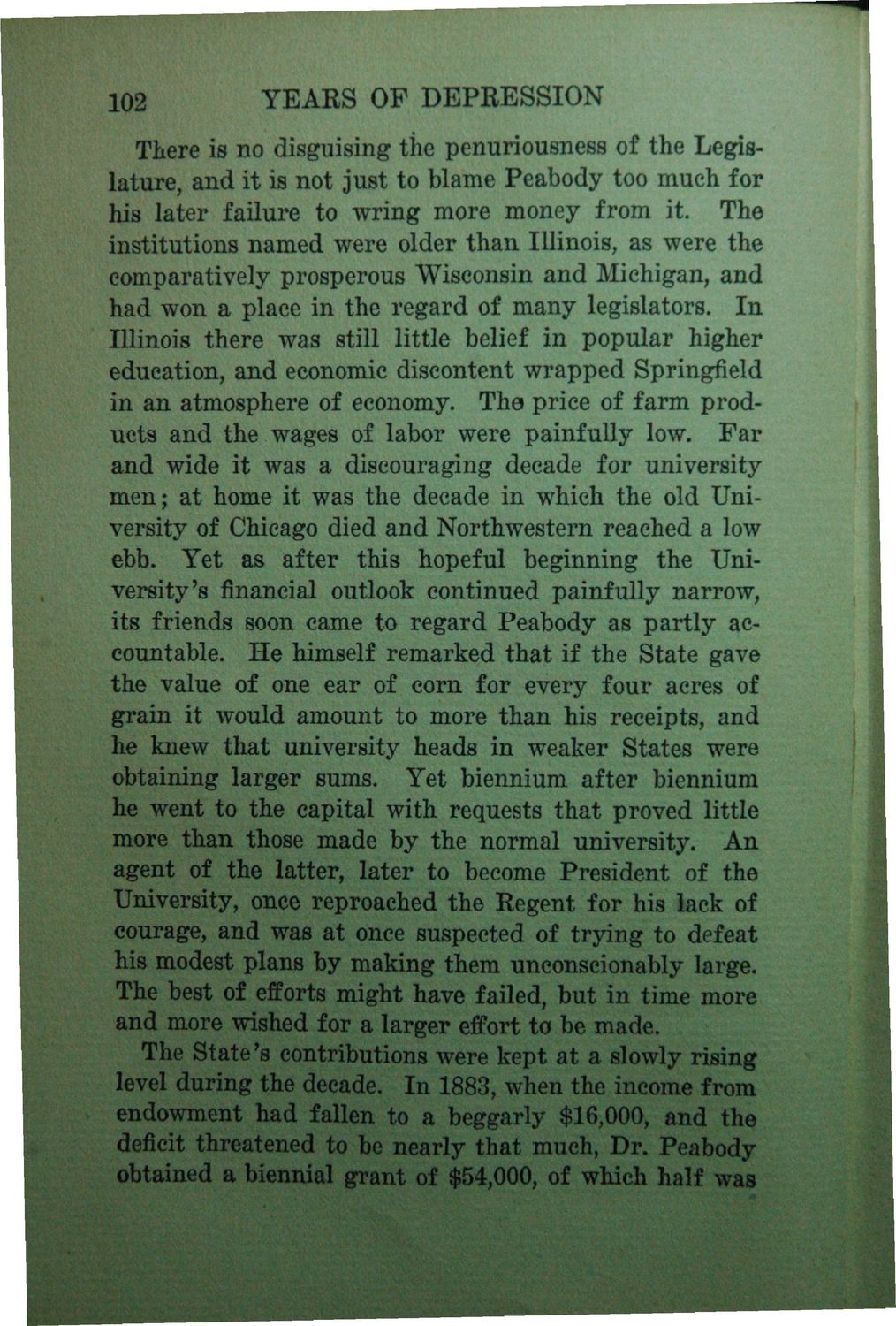| |
| |
Caption: Book - History of the University (Nevins)
This is a reduced-resolution page image for fast online browsing.

EXTRACTED TEXT FROM PAGE:
102 YEARS OP DEPRESSION There is no disguising the penuriousness of the Legislature, and it is not just to blame Peabody too much for his later failure to wring more money from it. The institutions named were older than Illinois, as were the comparatively prosperous Wisconsin and Michigan, and had won a place in the regard of many legislators. In Illinois there was still little belief in popular higher education, and economic discontent wrapped Springfield in an atmosphere of economy. The price of farm products and the wages of labor were painfully low. Far and wide it was a discouraging decade for university men; at home it was the decade in which the old University of Chicago died and Northwestern reached a low ebb. Yet as after this hopeful beginning the University's financial outlook continued painfully narrow, its friends soon came to regard Peabody as partly accountable. He himself remarked that if the State gave the value of one ear of corn for every four acres of grain it would amount to more than his receipts, and he knew that university heads in weaker States were obtaining larger sums. Yet biennium after biennium he went to the capital with requests that proved little more than those made by the normal university. An agent of the latter, later to become President of the University, once reproached the Regent for his lack of courage, and was at once suspected of trying to defeat his modest plans by making them unconscionably large. The best of efforts might have failed, but in time more and more wished for a larger effort to be made. The State's contributions were kept at a slowly rising level during the decade. In 1883, when the income from endowment had fallen to a beggarly $16,000, and the deficit threatened to be nearly that much, Dr. Peabody obtained a biennial grant of $54,000, of which half was
| |